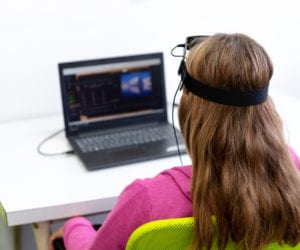The Benefits of Neurofeedback in Addiction Recovery

Retraining the Brain
When an individual struggles with an addiction to drugs or alcohol, the chemical makeup of the brain is altered. If you have a co-occurring disorder such as a mental health issue, the brain does not function ‘regularly’. Part of a successful recovery is ensuring that the brains functionality is back to a normal and healthy state and this can be a lengthy process, possibly taking years to completely restore. Sometimes, with severe substance abusers, the brain never operates at full capacity.
With the advent of new and profound technologies, individuals can undergo some of the most advanced recovery methods to date. When it comes to addiction recovery, not every single patient is a good candidate for traditional modes of treatment, nor are they a good candidate for detox and anti-craving medications. Neurofeedback is a non-pharmacological method of addiction recovery and has proven to be very successful in recovering addicts.
Neurofeedback is a painless treatment method that utilizes the power of electricity in order to detect activity in the brain. The procedure involves a shower cap-like device that is put over the patients head which has a number of sensors attached to it. When the patient goes through certain tasks, answers questions, or watches a video on the computer, the cap detects activity within the brain. The results are then displayed on a computer and consulted by a specialist in order to assess what is happening within the individual’s brain.
Benefits of Neurofeedback
There are many benefits of this non-medical addiction treatment modality. Some of the benefits of neurofeedback are:
- Enhanced memory
- Better ability to concentrate
- Reduced anxiety
- Better sleep
- Decreased headaches
- Improved mood
- Mental clarity
Neurofeedback reteaches the brain how to learn and function which betters the brain’s ability to perform effectively. The brain will continue to operate in this manner, creating the ‘loop’ effect which neurofeedback is best known for. The loop creates positive and lasting effects on the brains functionality which, in turn, enhances the individuals quality of life.
What Does Neurofeedback Treat?
Neurofeedback helps a host of mental issues in addition to drug addiction and substance abuse. Since this type of treatment targets the brain, it works best for those who struggle with conditions that affect the brain.
Neurofeedback can help those who struggle with various mental health disorders such as:
- Depression
- Anxiety
- Stress
- Insomnia
- PTSD
- ADHD
Neurofeedback works to target the reason why these individuals struggle so that the basis of the problems can be treated and managed. The great thing about neurofeedback is that is works to treat the root cause of the problem and not simply just the symptoms, as many medications do. By treating the foundation of the problem, the patient can get lasting results.
If you or someone close to you is struggling with addiction or mental health issues, neurofeedback can help you make a full recovery. There are many benefits of non-medical means to recovery and neurofeedback is ideal for those who want a prescription-free means to recovery.
If you or a loved one needs help with abuse and/or treatment, please call the WhiteSands Treatment at (877) 855-3470. Our addiction specialists can assess your recovery needs and help you get the addiction treatment that provides the best chance for your long-term recovery.
